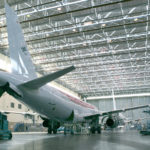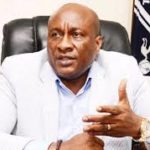
Last Friday Air Peace marked inaugural flight to Dubai via Sharjah as its first foray into international operations.
Air Peace was not the first Nigerian carrier to operate to Dubai. In fact, the Dubai route was largely opened for West Africa by the defunct Nigeria Airways Limited (NAL) before it became a popular destination.
But since then no Nigerian carrier had succeeded on that route. Former Virgin Nigeria Airways started Lagos-Dubai flight and only lasted about six months. Arik Air stated and lasted about the same period and Medview Airline even stayed less than six months on the route.
On Virgin Nigeria Airways, reports indicated that it was pressured out of the route by Emirates, which brought down its fares, gathered all the passengers and forced out the Nigerian carrier.
The major challenge Medview Airline had was operational aircraft. It could not deploy aircraft to meet its schedule on the route and Arik Air also could not sustain its operations due to unfavourable logistics and cost of operation.
So now that Air Peace has decided to operate to the most visited city in the Middle East, many aviation industry insiders are circumspect. Will Air Peace break the jinx? Will it be forced out after some time?
The major factor that has driven out the airlines out of the route before the simple reasons of airfares strategy is aeropolitics. For example, Medview was denied leasing a modern aircraft to compete on the London and Dubai route. Arik Air had the best equipment but could not stand the forces against it on the route and Virgin Nigeria was made uncompetitive by Emirates.
The Chairman and CEO of Air Peace, Allen Onyema acknowledged in interview after the inaugural flight that no airline can succeed without government support. For example, Emirates comes to Nigeria three times a day, 21 times weekly and Etihad comes to Nigeria seven times weekly. Both airlines from UAE operate to Nigeria 28 times a week. No Nigerian airline is reciprocating the route. In the Bilateral Air Service Agreement (BASA) Nigeria signed with UAE, Nigerian airlines are supposed to also operate the same number of frequencies as the UAE carriers.
The Nigerian ambassador to UAE, Mohammed Rimi who welcomes Air Peace to Dubai expressed happiness that a Nigerian carrier was starting a flight to the Emirates, at least, to reciprocate the air service agreement Nigeria has with the Gulf country. But it is just three times a week against 28 times weekly of UAE.
Industry observers are of the view that Emirates would not even be happy with the three times weekly flight of Air Peace because they would want to have the Nigerian routes all by themselves and they would do anything possible to drive out the indigenous carrier. That is why they advocate that Nigeria should adopt the principle of reciprocity if they want Nigerian carriers to succeed in international service. This means that whenever they force out a Nigerian carriers, using the usual spurious reasons, the Nigerian government would also reciprocate.
The former Chief Operating Officer of Medview Airline and currently the Director of Engineering, Ibom Air, Lukeman Animaseun told THISDAY that it is a tough challenge to survive the Dubai route because UAE gives tough conditions to foreign carriers in order to protect their own airlines.
“They push other airlines to the other airports outside Dubai in order to protect their airline, Emirates. When Medview was operating the route, they made sure that Emirates subsidiaries provided all the services to Medview, including ground handling, catering and others and you must pay for six months to one year in advance.
“Our airlines try to bring down their fares in order to attract more passengers but some passengers wouldn’t be attracted by that. This is because Emirates enjoy a lot of privileges.
“My advice to our airlines is that they should try as much as possible to interline. Interlining is good because you can exchange passengers and in that way bring down cost of operation, but it is unfortunate that the Nigerian government has designated many of those airlines to all the major airports in the country so they won’t need your services. That is why Nigerian airlines find it difficult to get interline partners,” Animaseun said.
He also said that government should waive some charges for local carriers that operate international routes in order to support them.
Also, industry consultant and CEO of Belujane Konsult, Chris Aligbe, noted that government seems to have lackadaisical attitude to privately owned business and may not give such wholesome support to a Nigerian flag carrier as it would do if there were a national carrier.
He also noted that what government would do at any time depends on the interest of that government.
THISDAY






